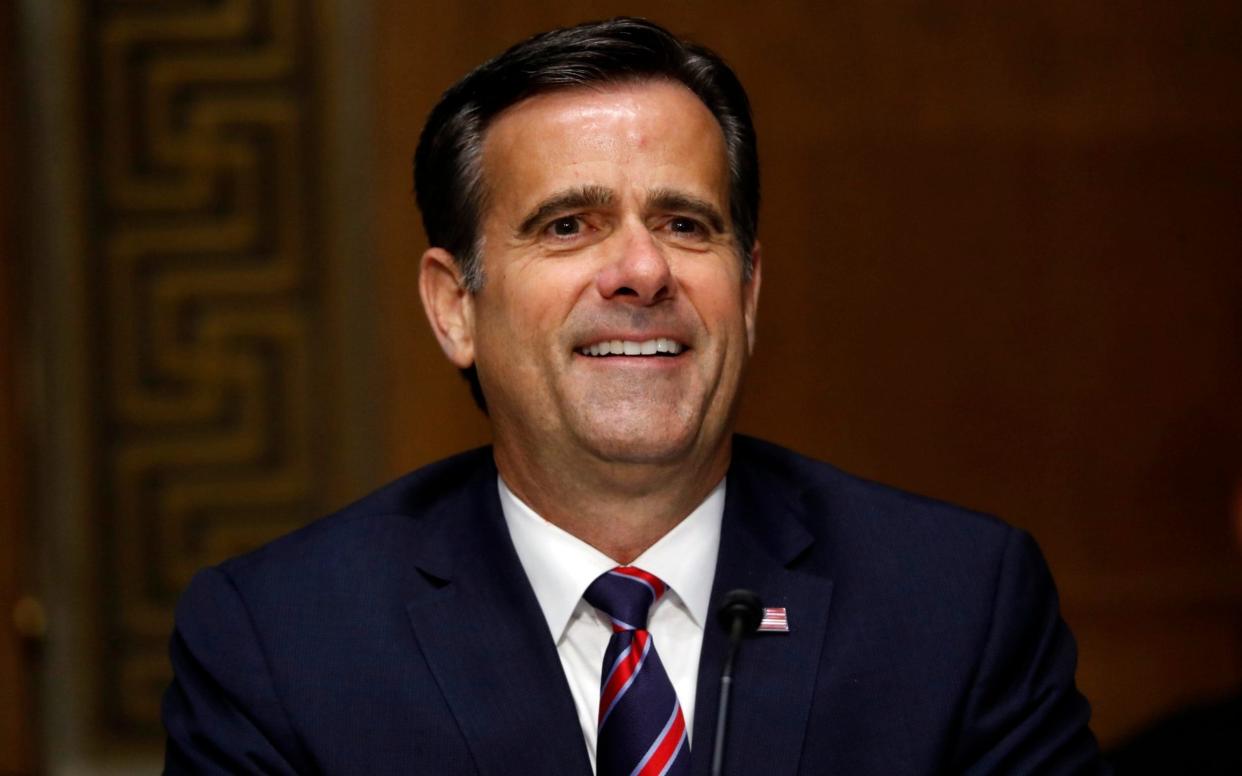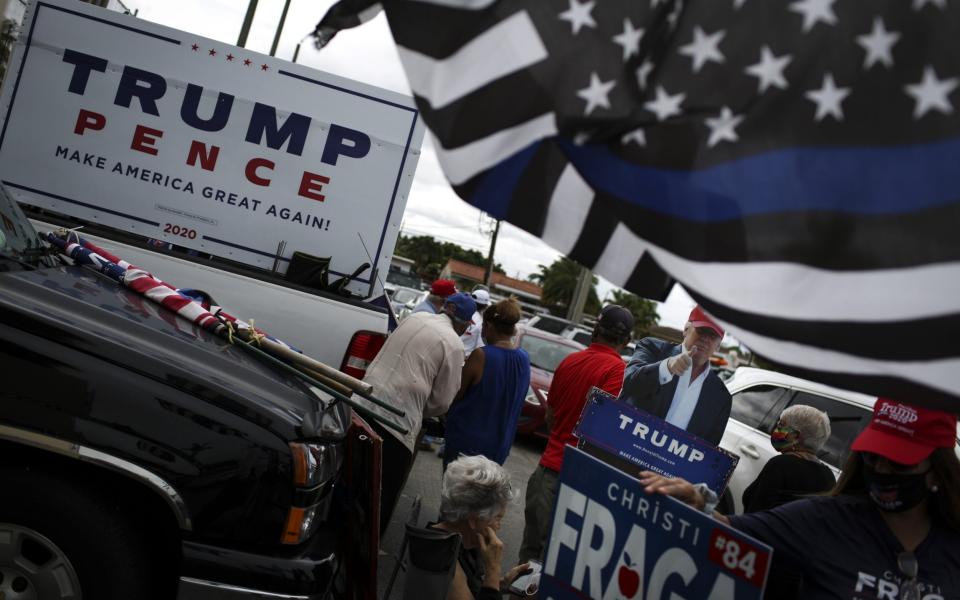FBI revelation conjures nightmare scenarios for how Iran and Russia could cause chaos this election


Iran and Russia are ready to pour fuel on the fire. That seems the unavoidable takeaway from the shock news that both powers have obtained US voter registration details.
The claim was made by two of the top figures in US intelligence in an unscheduled press conference at 7.30pm on Wednesday. The media was alerted just moments beforehand.
The briefing by John Ratcliffe, the US Director of National Intelligence, and Christopher Wray, the FBI director, lasted less than eight minutes.
No questions were taken. And yet the statement prompted so many, leaving viewers with both a deep sense of unease at what was happening and a lack of clarity about the scale of the problem.
Taken at face value, the statement makes a few things clear. First, that both Iran and Russia had been able to get their hands on information about registered voters.
Ratcliffe: Iran and Russia Have Obtained Voter Info, Iran Has Tried to ‘Damage President Trump‘ https://t.co/8DVFoD5CTc via @BreitbartNews
— Donald J. Trump (@realDonaldTrump) October 22, 2020
The public has not been told how the records were accessed, or how many voters’ details have been obtained, or where in America those voters are living.
The intelligence officials did not explicitly say that the powers had hacked directly into voter registration files.
Some experts noted some voter information is published online - each state has different procedures for elections - and the nations may have gleaned the records and matched them to other databases. We just do not know.
On Iran, officials also went a step further. They said that Tehran had used the information to send threatening, faked emails to voters - a direct attempt to influence voter thinking.
The exact email was not named in the briefing but it is believed to have been one supposedly sent by the Proud Boys, a far Right group which came up in the first presidential debate, when Donald Trump was challenged to condemn it.
The Washington Post had revealed before the briefing that some registered Democrats had been sent emails purporting to be from the Proud Boys demanding that they vote for Mr Trump.
The officials also pinned another piece of meddling on Iran - a video pushing disinformation about fraudulent ballots being cast overseas. The exact video in question was again not named.
On Russia, the intelligence officials were less explicit. They did not mention any action Moscow had taken on the voter information, but warned them off doing so.
The move was an attempt to both reassure the public, who were told their votes would be protected, and warn them not to fall for disinformation that could be coming their way.
It also, however, raised a worrying spectre about what was to come. If two powers hostile to America have voter information, what more could they do between now and election day on November 3?
Which is why the context of this election is critical to understand. This is no normal US presidential election, even putting aside the candidates and their approaches to the race.
Many Americans are voting in ways they never have done so before because of the Covid-19 pandemic, most notably in the vast increase in the use of postal ballots.
Scores of states have changed their voting procedures by either sending out mail-in ballots to more people than usual or closing some polling stations or changing deadlines.
The backdrop to the 2020 election is already confusion about the simple act of voting. Each state decides their own rules, meaning an effective nationwide strategy to educate voters on the changes is difficult.
And now - according to this new information - foreign adversaries are ready to exploit that complex picture about who can vote and when and how with their own disinformation.

What happens if, the day before the election, one of these powers emails voters to say the polls are staying open a day longer? Will people turn up on November 4, actually missing their chance to vote?
Or what if they contact voters and say incorrectly a Covid-19 outbreak has shut their local polling station? Or that they are in fact being advised not to vote at all because of the danger posed by the virus?
The mind boggles at the nightmarish possibilities. We do not know if Iran and Russia will act in the days ahead or how effective it might prove. But, according to the spooks, we now know they have the means. That fact alone will leave many Americans dreading for what could come next.


